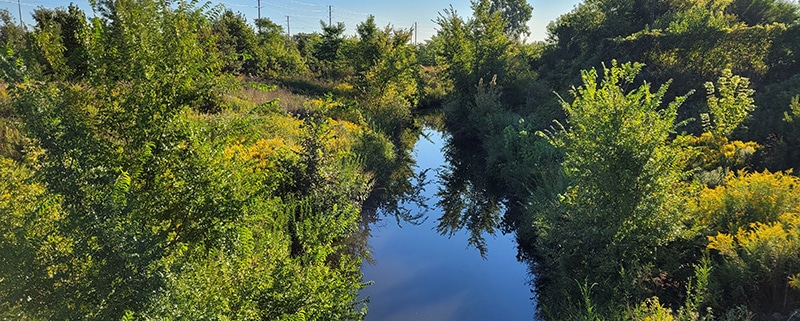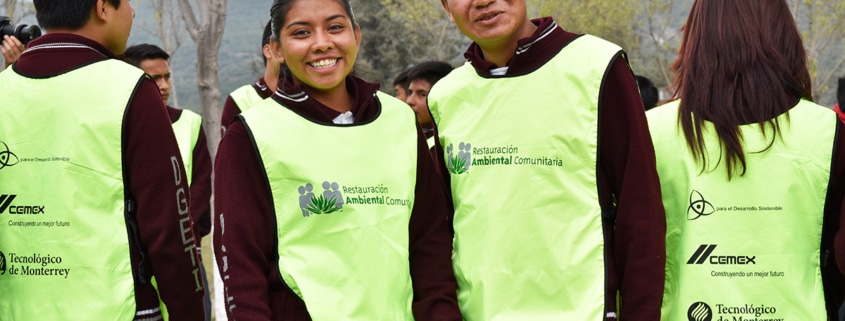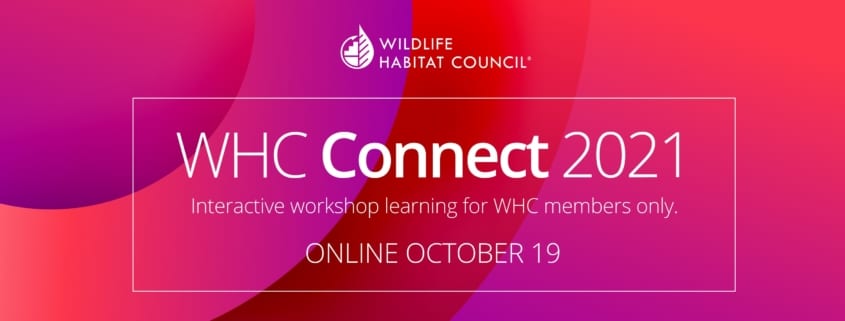WHC presents 2021 Ibis Award to the Stellantis Windsor Assembly Plant
SILVER SPRING, MD, December 6, 2021 – Wildlife Habitat Council (WHC) has announced the winner of the 2021 Ibis Award — the Stellantis Windsor (Ont.) Assembly Plant. The Ibis Award recognizes a WHC-Certified program that has demonstrated resilience of spirit and advancement of conservation despite lockdowns, quarantines and additional government-mandated regulations.
Since 2009, the plant has hosted educational events, such as tree plantings, for Windsor residents. The work performed by community members at these events has been a critical part of the company’s efforts to address the lack of urban tree canopy in the Windsor area. Participants, most of whom have been students, have helped plant 1,500 trees across the property.
During the Covid-19 pandemic, local regulations prevented Windsor Assembly Plant employees from organizing large-scale community events. Despite these barriers, the team remained committed to providing high-quality environmental education experiences for colleagues and Windsor residents.
“We are very proud and thankful to receive the Ibis award from the Wildlife Habitat Council in recognition of our efforts to help promote a positive and sustainable environmental footprint within Windsor and Essex County,” said Jon Desjardins, Windsor Assembly Plant Manager. “Faced with unprecedented challenges brought on by the Covid-19 pandemic this past year, our employees and the Unifor Local 444 Joint Workplace Committee demonstrated commendable resiliency in overcoming those obstacles and carrying out the hallmark initiatives of the conservation program for our colleagues and local youth in the community. We are grateful for their efforts in making our world and our environment a better place.”
The Windsor team opted to pivot from large-scale events to planning activities that participants of all ages could complete in an independent, socially distanced manner. The activities provided opportunities for creativity and outdoor exploration during a challenging time. Educational offerings included:
- Coping with Covid artwork: participants created and submitted environmentally themed art.
- Tree identification: participants explored the plant’s grounds and took note of various native tree species.
- Virtual geocaching: instead of finding a hidden box on-site, participants were provided with a link where they could upload pictures of themselves taking pro-environmental actions.
- Photography contest, Native or Invasive: participants photographed plants, birds, fish and animals, and determined if they were native to the Windsor area.
- Treasure hunt with a twist: using a map and written, pirate-themed clues, participants navigated to an on-site pollinator habitat and planted additional milkweed seeds.
Participants would send proof of participation to the activity organizers, who received as many as 125 submissions per activity, a figure comparable to the 130-person turnout for the team’s pre-pandemic planting events. While the organizers received submissions from everyone from preschoolers to site employees, most of the participants were secondary school students. The teens could use the activities to fulfill community service hours required for graduation, during a time when pandemic-related closures made finding volunteer work difficult. Extra credit was given to students who participated in habitat enhancement work, such as planting native wildflowers or trees, and submitted proof to the organizers.
Speaking to the Stellantis team’s resiliency, WHC President Margaret O’Gorman said, “By exercising flexibility and remaining sensitive to local needs, the Windsor team has not only been able to maintain their conservation program but has also grown its decades-long relationship with the greater Windsor community.”
In addition to the Ibis Award, the team’s efforts have been commended by Stellantis’ corporate offices, the Windsor municipal government and a local museum. Given this praise, and the overwhelmingly positive comments from participants and their parents, the Windsor team intends to continue offering self-directed educational activities, even when organized events become possible again.
About Wildlife Habitat Council
Wildlife Habitat Council partners with corporations, fellow conservation organizations, government agencies and community members to empower and recognize wildlife habitat and conservation education programs. Our members are environmental leaders at local, national and global levels, voluntarily managing their lands to support sustainable ecosystems and the communities that surround them. Since 1988, WHC has certified more than 1,000 habitat and education programs worldwide; WHC Conservation Certification programs can be found in 47 states, Washington, D.C. and Puerto Rico, and 25 countries. To learn more, visit http://tandemglobal.org or follow @WildlifeHC on Twitter.
About Stellantis
Stellantis (NYSE: STLA) is one of the world’s leading automakers and a mobility provider, guided by a clear vision to offer freedom of movement with distinctive, affordable and reliable mobility solutions. In addition to the Group’s rich heritage and broad geographic presence, its greatest strengths lie in its sustainable performance, depth of experience and the wide-ranging talents of employees working around the globe. Stellantis will leverage its broad and iconic brand portfolio, which was founded by visionaries who infused the brands with passion and a competitive spirit that speaks to employees and customers alike. Stellantis aspires to become the greatest, not the biggest, while creating added value for all stakeholders, as well as the communities in which it operates.
Follow company news and video on:
Company blog: http://blog.stellantisnorthamerica.com
Media website: http://media.stellantisnorthamerica.com
Company website: www.stellantis.com
LinkedIn: https://www.linkedin.com/company/Stellantis
Instagram: https://www.instagram.com/stellantisna
Twitter: @StellantisNA
YouTube:
http://youtube.com/StellantisNA











